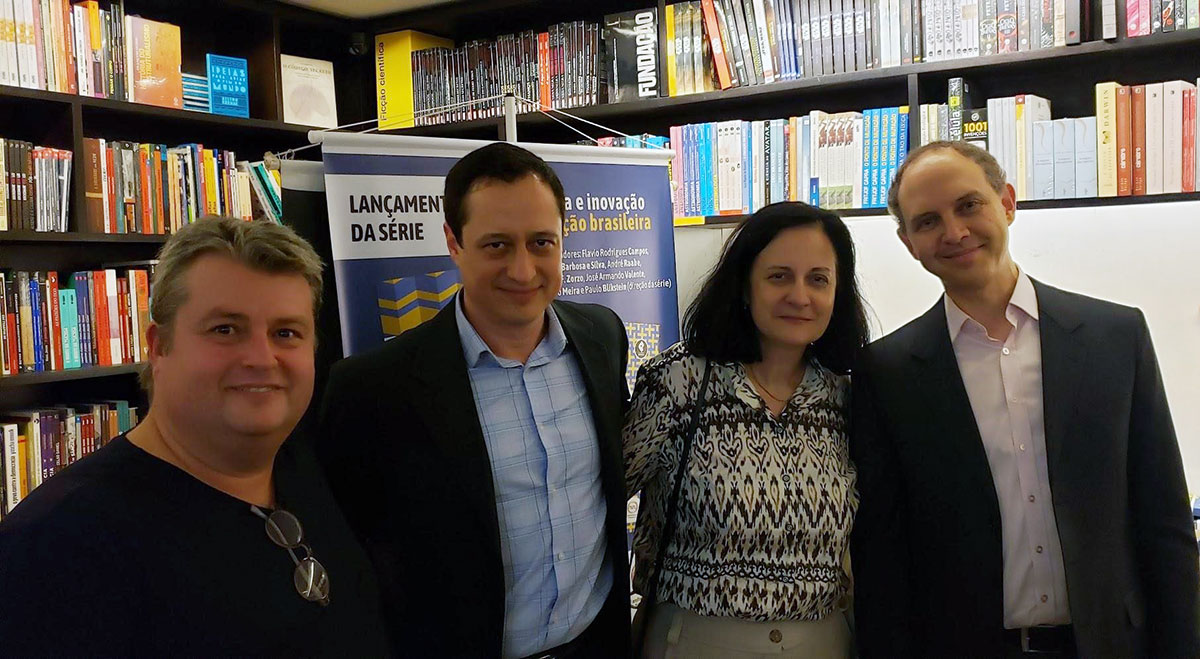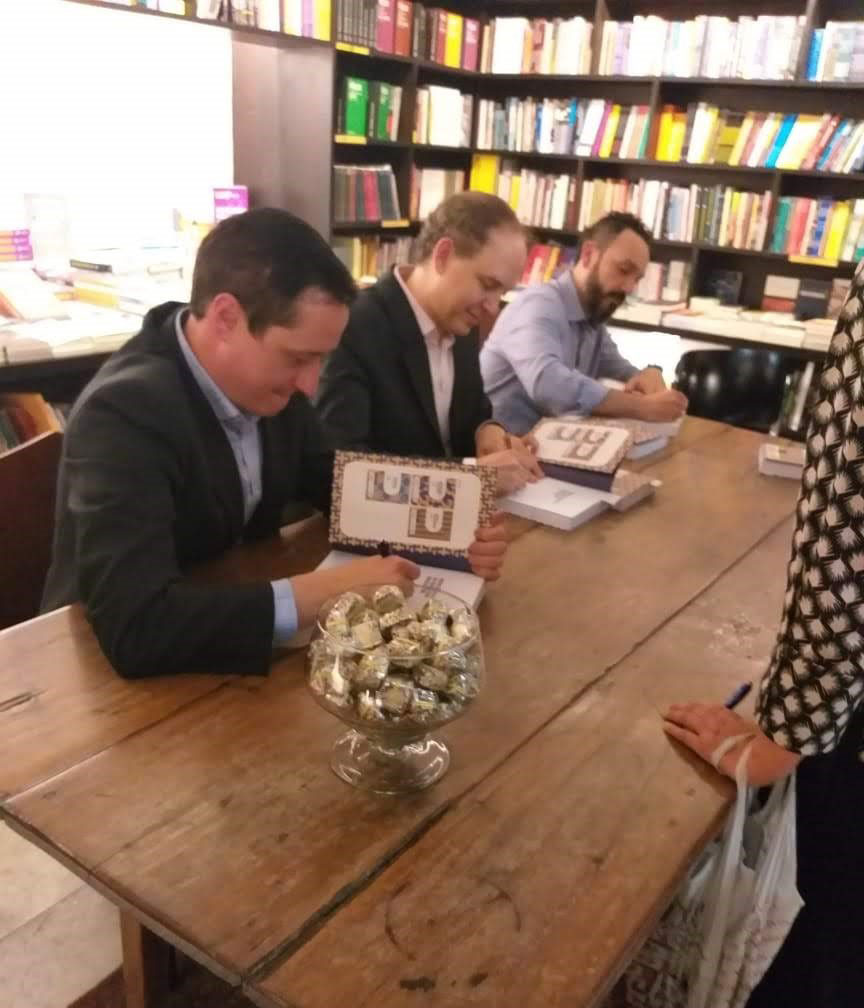
This Summer, researchers from the Lemann Center Stanford and Columbia University were in Sao Paulo to present the collection “Tecnologia e Inovação na Educação Brasileira.”
At Livraria da Villa auditorium, more than a hundred educators, scholars, and educators discussed technologies and innovation in Brazilian education. The event had two panels. The first panel discussed the importance of a collection of best practices to the Brazilian ecosystem of technology and innovation in Education. Professor Roseli de Deus Lopes, USP; Betty Almeida, PUCSP; and Camila Pereira, Lemann Foundation discussed challenges, opportunities, and the potential of technology and innovation in education. Following the discussion, professor Paulo Blikstein and co-organizers presented the five books to the community. According to the organizers, the collection is essential to share meaningful experiences employing technology and innovative practices in education. The first two books bring experiences in public schools, rural areas, universities, and research centers.
Tecnologia e Inovação na Educação Brasileira is a collection of five books organized by professor Paulo Blikstein and former Visiting Scholars and Visiting Students Researchers: Andre Raabe (Computação na Educação Básica), Flávio Rodrigues de Campos (Inovações Radicais na Educação Brasileira), José Armando Valente (Construção da Informática na Educação Brasileira), Luciano Meira (Ludicidade, Jogos Digitais e Gamificação na Educação), and Rodrigo Barbosa e Silva (Robótica Educacional). From Brazilian Society of Computing, Avelino Zorzo is also a coauthor of the book Computação na Educação Básica.
Rodrigo Barbosa e Silva, currently Postdoctoral Research Scholar at Stanford, states that the collection highlights how technologies are evolving to comply with educational requirements. Rodrigo affirms that technology is a human aspect, and it is already present in schools. For instance, Rodrigo believes that robotics education has a long history of successful experiences in schools. “Our challenge,'' says Rodrigo, “is to democratize robotics. It is not possible to accept that education continues to be divided between students with access to everything, including digital technologies, and others with nothing, confined to outdated practices”.
According to Mr. Barbosa e Silva, public universities in Brazil are responsible for the success of cutting-edge robotics education platforms presented in his book co-organized with professor Blikstein. Among 60 authors, 56 of them either studied or worked in public institutions. Also, the experiences show that public institutions mostly produce open platforms, free software, and open hardware. These open resources are freely available to anyone to use, without any need to pay royalties, licenses, and services.
Professor Campos states that the book Radical Innovations in Brazilian Education describes experiences of innovative schools in Brazil. Also, it presents educational practices from educators who changed their classroom environment to promote innovations in teaching and learning practices. Therefore, the book presents 43 chapters and more than 75 authors, from kindergarten to university, intending to foster reflections related to education and schooling.
The collection, edited and commercialized by Editora Penso, is composed of five books, 371 authors, and 131 chapters. The two first books are already printed and on sale:


